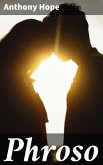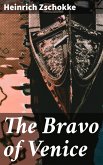In "Imogen," William Godwin weaves a narrative rich with themes of virtue, deception, and the complexities of human relationships. Written in the late 18th century, this novel reflects Godwin's philosophical leanings and interest in human reason and moral purity. The literary style is marked by its introspective character studies and nuanced dialogues, as Godwin explores the intricate dynamics of affection, loyalty, and the trials faced by his titular character, Imogen, against the backdrop of societal expectations and personal integrity. The work sits within the broader context of Romantic literature, characterized by its emphasis on individualism and emotional depth. William Godwin, an influential thinker in the realms of philosophy and political theory, was deeply influenced by the tumultuous societal changes of his time. His background in radical thought and advocacy for social justice informed his exploration of moral dilemmas in "Imogen." As a contemporary of Mary Wollstonecraft, whose insights on women's rights paralleled Godwin's themes of individuality and autonomy, his literary endeavors aimed at challenging the prevailing narratives surrounding gender and virtue. "Imogen" is a compelling read for those drawn to psychological depth and moral inquiry. Godwin's ability to intertwine philosophical discourse with intricate storytelling makes this novel a significant contribution to the canon of early modern literature. Readers will find themselves captivated by Imogen's journey and the thought-provoking questions it raises about morality, choice, and the human condition. In this enriched edition, we have carefully created added value for your reading experience: - A succinct Introduction situates the work's timeless appeal and themes. - The Synopsis outlines the central plot, highlighting key developments without spoiling critical twists. - A detailed Historical Context immerses you in the era's events and influences that shaped the writing. - A thorough Analysis dissects symbols, motifs, and character arcs to unearth underlying meanings. - Reflection questions prompt you to engage personally with the work's messages, connecting them to modern life. - Hand-picked Memorable Quotes shine a spotlight on moments of literary brilliance. - Interactive footnotes clarify unusual references, historical allusions, and archaic phrases for an effortless, more informed read.
Dieser Download kann aus rechtlichen Gründen nur mit Rechnungsadresse in A, B, BG, CY, CZ, D, DK, EW, E, FIN, F, GR, H, IRL, I, LT, L, LR, M, NL, PL, P, R, S, SLO, SK ausgeliefert werden.









